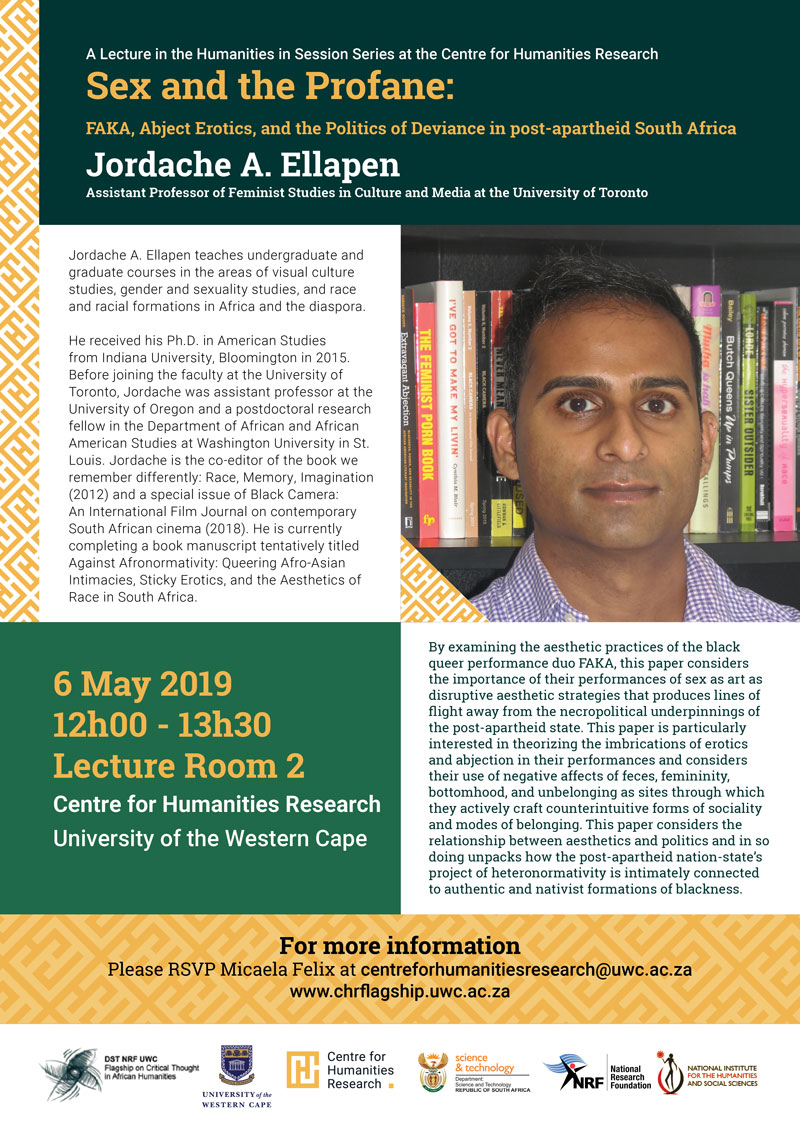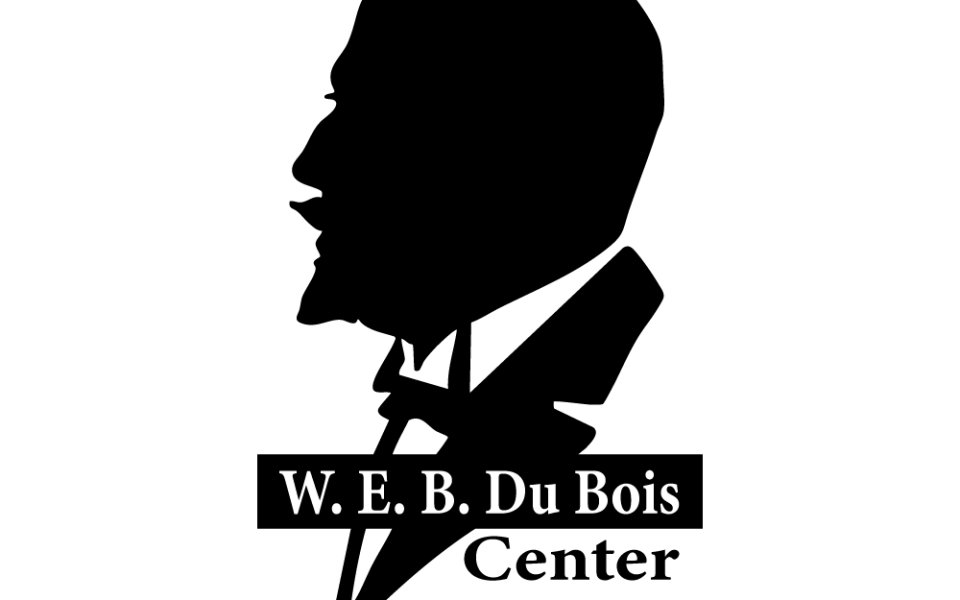Sex and the Profane: FAKA, Abject Erotics, and the Politics of Deviance in post-apartheid South Africa

Assistant Professor Jordache Ellapen University of Toronto
A Lecture in the Humanities in Session Series at the Centre for Humanities Research
Assistant Professor Jordache Ellapen
University of Toronto
Sex and the Profane: FAKA, Abject Erotics, and the Politics of Deviance in post-apartheid South Africa
Date: Wednesday, 6 may 2019
Venue: Room 2, Centre for Humanities Research, University of the Western Cape
Time: 12h00 – 13h30
For more information
Please RSVP Micaela Felix at centreforhumanitiesresearch@uwc.ac.za
Bio
Jordache A. Ellapen is Assistant Professor of Feminist Studies in Culture and Media at the University of Toronto where he teaches undergraduate and graduate courses in the areas of visual culture studies, gender and sexuality studies, and race and racial formations in Africa and the diaspora. He received his Ph.D. in American Studies from Indiana University, Bloomington in 2015. Before joining the faculty at the University of Toronto, Jordache was assistant professor at the University of Oregon and a postdoctoral research fellow in the Department of African and African American Studies at Washington University in St. Louis. Jordache is the co-editor of the book we remember differently: Race, Memory, Imagination (2012) and a special issue of Black Camera: An International Film Journal on contemporary South African cinema (2018). He is currently completing a book manuscript tentatively titled Against Afronormativity: Queering Afro-Asian Intimacies, Sticky Erotics, and the Aesthetics of Race in South Africa.
Abstract
By examining the aesthetic practices of the black queer performance duo FAKA, this paper considers the importance of their performances of sex as art as disruptive aesthetic strategies that produces lines of flights away from the necropolitical underpinnings of the post-apartheid state. This paper is particularly interested in theorizing the imbrications of erotics and abjection in their performances and considers their use of negative affects of feces, femininity, bottomhood, and unbelonging as sites through which they actively craft counterintuitive forms of sociality and modes of belonging. In their performances, funk and fuck merge to produce a distinctly black African queer feminist politics that they refer to as Siyakaka feminism. Siyakaka feminism emphasizes both the disruptive and generative nature of the erotic, where pleasure in abjection shifts the erotic from power to force. Embracing transgressive pleasure, FAKA actives the political, re-scripting the black/African body into an alternative site of knowledge production emphasizing “embodied knowledge” as a decolonial praxis. Building on black and African feminists and queer of color critique this paper analyzes FAKA’s “politics of deviance” as a strategy that disrupts the ways in which black/African bodies are captured within the heteronormative gaze, foregrounding the paradoxes of freedom in South Africa, especially for black African queer subjects. This paper considers the relationship between aesthetics and politics and in so doing unpacks how the post-apartheid nation-state’s project of heteronormativity is intimately connected to authentic and nativist formations of blackness.





